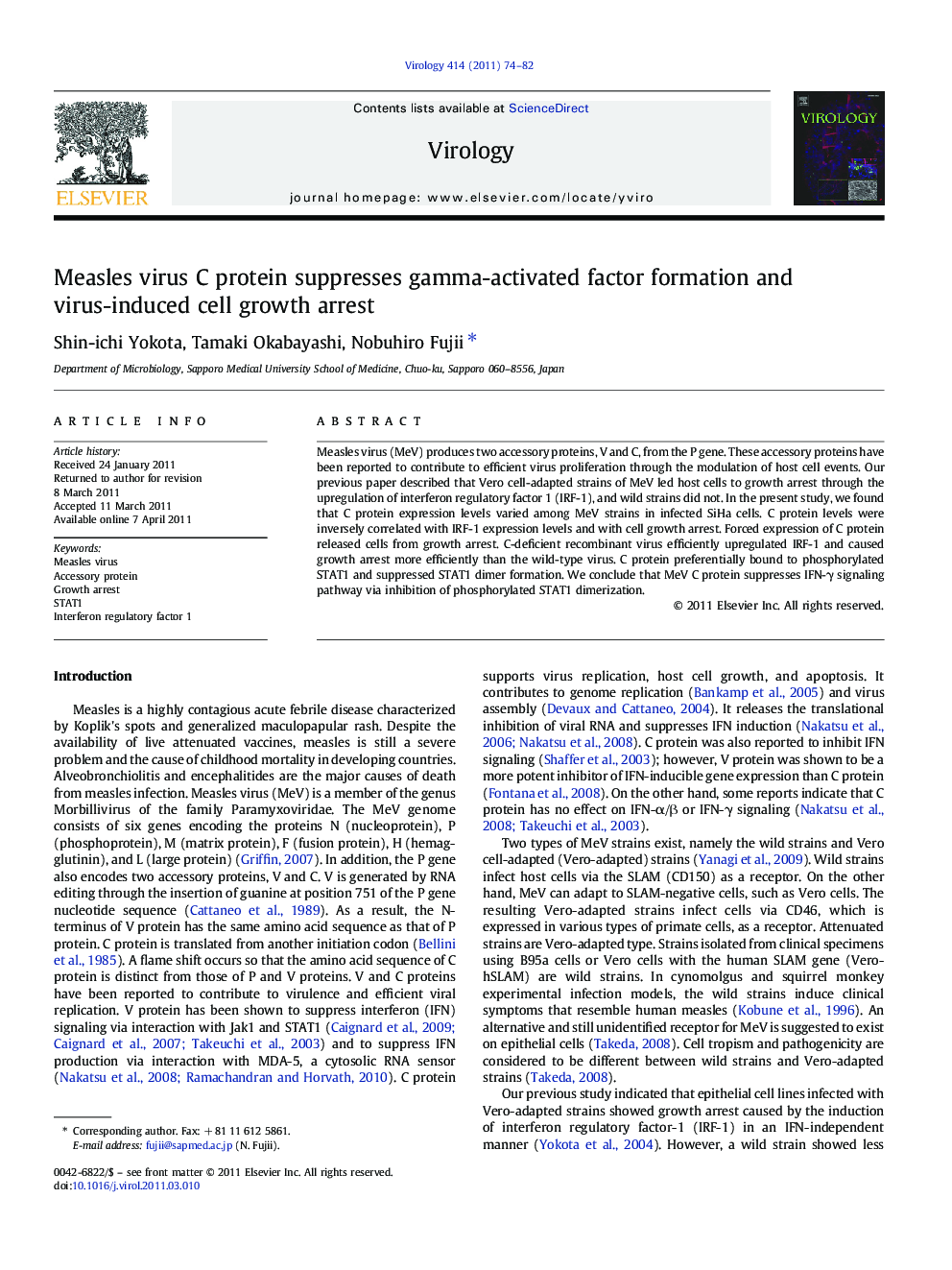| Article ID | Journal | Published Year | Pages | File Type |
|---|---|---|---|---|
| 3424819 | Virology | 2011 | 9 Pages |
Measles virus (MeV) produces two accessory proteins, V and C, from the P gene. These accessory proteins have been reported to contribute to efficient virus proliferation through the modulation of host cell events. Our previous paper described that Vero cell-adapted strains of MeV led host cells to growth arrest through the upregulation of interferon regulatory factor 1 (IRF-1), and wild strains did not. In the present study, we found that C protein expression levels varied among MeV strains in infected SiHa cells. C protein levels were inversely correlated with IRF-1 expression levels and with cell growth arrest. Forced expression of C protein released cells from growth arrest. C-deficient recombinant virus efficiently upregulated IRF-1 and caused growth arrest more efficiently than the wild-type virus. C protein preferentially bound to phosphorylated STAT1 and suppressed STAT1 dimer formation. We conclude that MeV C protein suppresses IFN-γ signaling pathway via inhibition of phosphorylated STAT1 dimerization.
